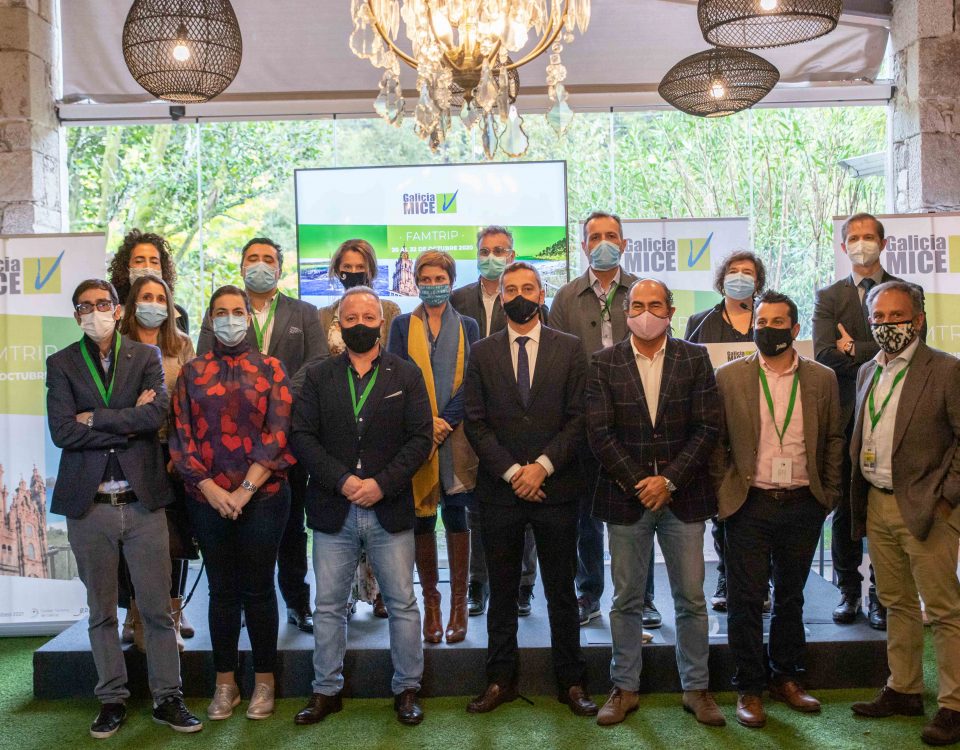- El mejor turismo de galicia
Activities
The 9 participants in the Galicia MICE ‘fam trip’ were in Santiago for an informative event. They were accompanied by the director of the Galician Tourism Agency, Nava Castro, and the president of the Galicia Tourism Cluster, Cesáreo Pardal.
Galicia MICE is a program promoted by the Galician tourism sector of Meetings, Incentives, Conferences and Exhibitions (MICE), which has the support of the Galician Tourism Agency, the Galician Tourism Cluster and the town councils of the main cities .
During his speech, the president of the Galicia Tourism Cluster, Cesáreo Pardal, thanked the professionals for participating in this initiative in the current situation. In this sense, he also congratulated those responsible for Galicia MICE for “making it possible to organize such a complete, interesting and safe activity under these conditions.”
Cesáreo Pardal highlighted the effort being made by the tourism sector and the Galician public administrations to conserve and protect “what, today, is one of our main strengths: being a safe destination.” The president of the Cluster also transmitted a message of encouragement and support to business tourism, which is suffering in a special way the consequences of the pandemic.
He also stressed that the participants in this initiative will be able to verify that Galicia has “modern spaces and establishments perfectly adapted to the new realities and expectations of companies to combine work needs with the experience of an unforgettable experience.”
Participants in the ‘familiarization trip’ began their tour of Galicia on Tuesday, when they visited places such as the Santiago food market, the Parador Costa da Morte, in Muxía, or the MEGA museum, and stayed at the new Doubletree Hotel by Hilton in A Coruña.
On Wednesday, they visited the NOA Boutique Hotel in Oleiros and went to the Quinta da Auga Hotel, where the informative event took place. Later they visited the Pazo do Faramello, in Rois, and the Pazo de Baión, in Vilanova de Arousa. After having dinner at the Maruja Limón restaurant in Vigo, they plan to stay at the Pazo Os Escudos Hotel in this city.
On Thursday they will participate in a ‘workshop’ in the morning and will take a tour aboard a scientific observation boat through the Ría de Vigo. After having lunch at the Mauro restaurant, they will visit the Mar de Vigo Auditorium and the facilities of the Real Club Celta headquarters and the Silabario restaurant.




